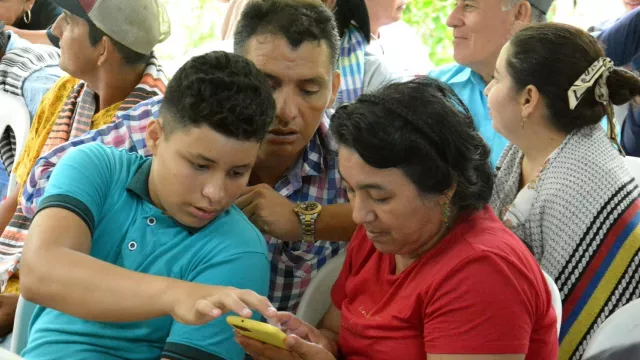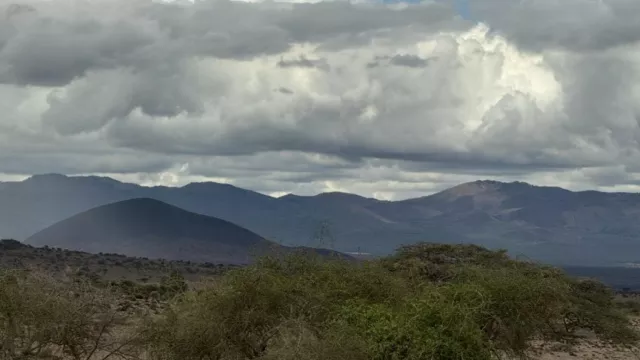South Asia

About
Home to more than 1.8 billion people, South Asia has incredible diversity across climates, economies, and cultures. It holds the promise of exciting development opportunities while facing complex challenges. For more than five decades, South Asia has hosted some of CGIAR’s most treasured partnerships and has contributed significantly to the introduction, growth and scaling of new technological innovations. Farmers’ ambition to adopt innovations and policymakers’ support for scaling has increased household food security in the most densely populated region of the world. Now, climate change and nutrition security are challenging the region in new ways.
Effective engagement with partners is critical to ensuring a food secure future for all, and a coordinated strategy and regional presence facilitate robust collaboration and joint action with stakeholders. CGIAR helps determine advocacy priorities through the triangulation of demand, supply, and feasibility, helping inform global, regional and countries policies and investments, and provides services for partners.
In South Asia, CGIAR is a trusted independent party, providing a single point of entry as well as solutions for coordinated action across sectors. Its focus on capacity-sharing for development enables structured multi-directional spaces for co-learning and co-creation through collaborative research, training and other arrangements of mutual interest. CGIAR also brings private sector collaboration, through resources, capacities, and networks crucial to co-developing and deploying innovations and technologies that benefit people and the planet at scale.
Challenges and Opportunities
- South Asia is the world’s most poverty- and malnutrition-dense region.
- The region faces deep inequalities, major resource degradation, and is a global hotspot for climate change risk.
- There is immense diversity in the region, both within and across countries, with a wide range of agroecological zones that span mountains to polders, as well as in food traditions and traditional or heritage crops.
- Despite this, farming is heavily cereal-based and needs significant diversification.
Research and Action
CGIAR works to:
- Transform current food systems to become more sustainable and equitable and increase nutrition security across the region.
- Deliver an integrated approach to research that fills the gaps in current research-for-development work, and more acutely responds to national and local demands and expectations.
- Share scientific expertise more easily within the region and across other countries of the Global South.
Services for partners include:
- Discovery Hub: A place to explore opportunities for collaboration in formal and informal settings.
- Partner and Landscape Intelligence: Enabling partners to collect, analyze and share data and insights on trends, opportunities, and market demand.
- Advocacy for Impact (A4I): Services to strategize, plan and implement advocacy actions and campaigns.
- Private Partnerships for Impact (PP4I): Services to create new business opportunities that scale knowledge, research outcomes, and innovations, and facilitate technology-sharing and equitably monetize knowledge products and services that align with market and stakeholder demand.
- Innovation and MELIA Lab: for the co-creation, prototyping, piloting, and assessment of new partnerships models.
- Partnerships and Advocacy Lifecycle Hubs: Making available strategic guidance and operational support for the origination, implementation, and closure or renewal of partnerships and purposeful advocacy to maximize partnership benefits, mitigate risks, and reduce transaction costs.
Partners
Advocacy yields true impact when it reflects the needs of people affected directly by issues and elevates their voice. Effective partnerships create opportunities to co-create solutions, leverage synergies, share assets and resources, and create spaces for new and diverse voices to emerge and exchange knowledge. Partnerships built on trust, shared visions, and common goals are vital to achieving planetary and human well-being that they are the foundations of, and integrated into, the 2030 Sustainable Development Agenda. CGIAR works with partners to co-identify challenges, co-generate evidence, and co-deliver innovations.
News
-

Lacteos del Hogar Dairy Suppliers Align with Zero-Deforestation Agreements
During two sessions in Morelia and Florencia (Caquetá), suppliers of Lácteos del Hogar were trained in MyGeoFarm and ZDA MRV systems to certify...
-

Piloting Kenya’s nature-based solutions monitoring and evaluation framework: Lessons from Chyulu Hills
MoALD in collaboration with the Alliance of Bioversity International and CIAT under the CGIAR Climate Action Science Program , piloted a national NbS...
-

Rethinking land optimization: Balancing nature, people and productivity
With the global population projected to reach around 8.5 million by 2050, the pressure on land is intensifying. Rising demand for food, energy, and...
-

Give entrepreneurs what they need, watch businesses soar
In May 2025 in Malawi, Mercy Phiri joined the Business Acceleration for Youth project expecting entrepreneurs to chase grants. Instead, working with...
Publications
-
Progress Report Ethiopias Partnership for Accelerating Agricultural Solutions Scaling PAASS
-
Seasonal variation in mosquito abundance and environmental predictors in semipastoral southern Kenya implications for endemic Rift Valley fever
Background: Ecological variables that vary across time and space shape mosquito populations, creating microenvironments that can become disease...
-
Impact of invasive weed Parthenium hysterophorus Asteraceae on mosquito abundance and plantfeeding behavior in an arboviral endemic region in Kenya
Background: Invasive alien species (IAS) are rapidly altering ecosystems, undermining biodiversity, ecosystem processes, and interspecies...
-
Spatial modelling improves genomic evaluation in Tanzanian smallholder admixed dairy cattle
Background: Smallholder dairy production systems in low-and middle-income countries are characterised by large phenotypic variance due to diverse...

